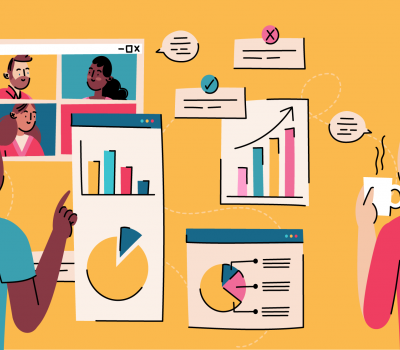Using ethnographic research and co-creation workshops together
Posted by Marketing & PR on 17 Sep 2025

When organisations want to design services or products that genuinely connect with people, it’s not enough to guess what customers need. Too often, assumptions lead to wasted effort and ideas that miss the mark.
Ethnographic research and co-creation workshops can shift that pattern. Used together, they bring fresh insight and real-world relevance to every stage of design.
What is ethnographic research?
Ethnography is about stepping into the daily lives of the people you want to serve. Instead of relying on surveys or staged interviews, it means observing behaviours in the settings where they naturally happen. You see how people make decisions, what frustrates them and where workarounds appear.
Take the example of a household app designed to manage bills. A survey might suggest people want something that feels simple and clear. Sitting at the kitchen table with a family tells a richer story. You see the stress of shared responsibilities, the piles of confusing letters and the endless calls to providers. These details reveal the challenges people live with, often ones they cannot articulate.
What is co-creation?
Co-creation takes those insights and brings people into the design process as partners. Through workshops, customers, employees or community members work side by side with a team to explore problems and shape possible solutions. It goes further than asking for feedback. It gives people the chance to guide the direction from the very start.
The process builds trust and often uncovers fresh perspectives. A healthcare workshop with patients, for instance, might reveal that the frustration lies less with waiting times and more with the lack of communication around appointments. By opening the floor to those lived experiences, solutions can be crafted that genuinely respond to real needs.
Why workshops work best when combined
Ethnography and co-creation each hold value, but together they create something far more powerful. Ethnography gives you the depth of understanding, the quiet observation of what people actually do. Co-creation turns that understanding into action, bringing those same people into the process to generate ideas and test them.
The real strength comes from cycling between the two. You begin by observing to uncover hidden needs. Then you take those findings into a workshop where participants explore and reframe the challenges. Prototypes are created and tested back in real settings.
Further observation shows how people interact with them, leading to another round of refinement. What emerges is not a single burst of research or one-off session but a continuing dialogue between designers and the people who live with the outcomes.
The benefits of working this way
Combining ethnographic research with co-creation workshops transforms the way organisations understand and engage with their audiences. Teams move beyond abstract data and instead develop empathy rooted in real encounters. Solutions become more relevant because they are shaped and tested by the very people who will use them.
Customers feel respected and valued when their input influences decisions, creating stronger relationships. And by working together, unexpected ideas surface that might never appear in traditional meetings.
A more human way forward
Bringing these two approaches together is as much about mindset as it is about method. It asks organisations to see people not as subjects but as partners and to accept that the best answers come from those who live the questions every day.
It may take more effort upfront to run observations and workshops, but the reward is clear. You end up with services and products that fit naturally into people’s lives. More importantly, you build a culture that listens, learns and evolves with those it serves.
That kind of human-centred design is not only practical but also a powerful way to stand out in a world where expectations are always changing.
Our Expertise
We’ve been creating highly successful social marketing campaigns for our customers for over two decades. We love our work and utilise the latest marketing communication tools and customer insight techniques, including ethnographic research and co-creation workshops.
This enables us to develop and integrate marketing concepts with other approaches to influence behaviour that benefits individuals and entire communities for the greater good.
Within our team, we have leading nationally recognised academic professionals within Psychology, Mental Health and Cognitive Behavioural Therapy that advise what messages and mediums will deliver the best response when we scope out a communications campaign or deliver any targeted communications.
This provides our clients with the reassurance and confidence of knowing that their communication objectives are underpinned by recognised academic behavioural theory, executed with award-winning creative design and using the latest Marketing Automation communication tools, whether it’s on a local, regional or national project.
Perfect Circle has delivered social change for clients like schools, local government, not-for-profit organisations, the health sector and niche commercial businesses, and we’re really proud of what we’ve done so far.
If you’d like our help on your next Behaviour Change Marketing or Social Marketing campaign, we’d love to hear from you. Please visit our contact page and get in touch.

The power of automated marketing
Download Report